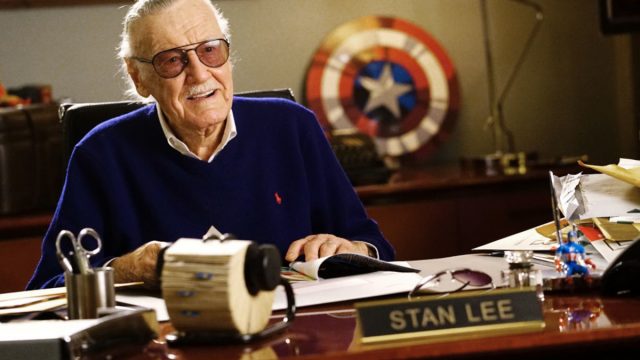Let’s be real—I didn’t do an obituary of Stan Lee because I’d already covered him for Celebrating the Living. With very few exceptions, I figure that’s me having done my duty by the person. I’ve said what I have to say, and there’s no real point in hashing it out again. If someone else feels the person deserves an actual, at-the-time-of-their-death obituary, well, let someone else write it. It’s not as though I actually get paid; even my Patreon is set up to be monthly, not per-article.
The other issue, of course, is that Stan Lee has an incredibly complicated legacy that I don’t intend to go into here, and I’m never sure how I felt about him myself. It’s a conversation that we’ve been having for decades now, and it seems fair to maybe not have it for a few days just after he died. The one thing I think we can all agree on is that, no matter how much he had to do with the creation of all of those characters, few if any people have the place in pop culture that Stan Lee did.
You can name others. Lucas, of course. Spielberg. Hitchcock. And so forth. It’s another argument that will be had for years, with various names in various media. Quincy Jones, if you’re going for music, and why not? There are plenty of people who have definitely shaped pop culture for years that followed. Too soon to know for how long; we live in an era of young media. How will film age? We don’t know. Have we lived in the era of another Shakespeare, another Dickens? There’s no way of knowing.
What Stan Lee, I think, shaped more than anyone in history was how creators and fans interacted. Before Twitter, before blogging, before the days when you could argue with your idol a continent apart at three in the morning, there was Stan’s Soapbox. For decades, Stan Lee bantered with the readers, giving information and insults and whatever else felt necessary in any given column. You had to be a comic book fan to know that, but all comic book fans knew that.
This is not an entirely positive thing, as we know. Any number of celebrities can tell you horror stories about what it turned out to be like to interact with their publics. The closer we get to those celebrities, the more difficult it is for us and for them to keep any kind of real detachment. There is an unpleasant sense of ownership of celebrities, and Tabitha King—whose husband is probably also on that “incredibly influential” list—has some pretty scary stories about some of the fans she’s encountered over the years. Like the one who found his way into her kitchen, for instance.
Oh, it’s inevitable that it would have happened sooner or later; we are more connected now than at any other age in history, and it seems impossible to believe that it wouldn’t have included connection to celebrities, who after all are people, too. Chris Evans may be a voice of the masses on Twitter, but you figure he also likes, you know, staying in touch with his friends the way most of the people I know on social media use it. And of course he has that position because of Stan Lee for other reasons having nothing to do with Twitter. But I wonder if the intense connections of fandom have at least some root in how ubiquitous Stan Lee made himself, how the fans could, even before it was cool, feel that they knew him.
You can be incredibly influential in my life by supporting my Patreon!

